A Future Called Europe
Can the European Union be salvaged?
Can the European Union Be Salvaged?
New books by Timothy Garton Ash and Loukas Tsoukalis document the moral and political exhaustion of the “EU” generation.
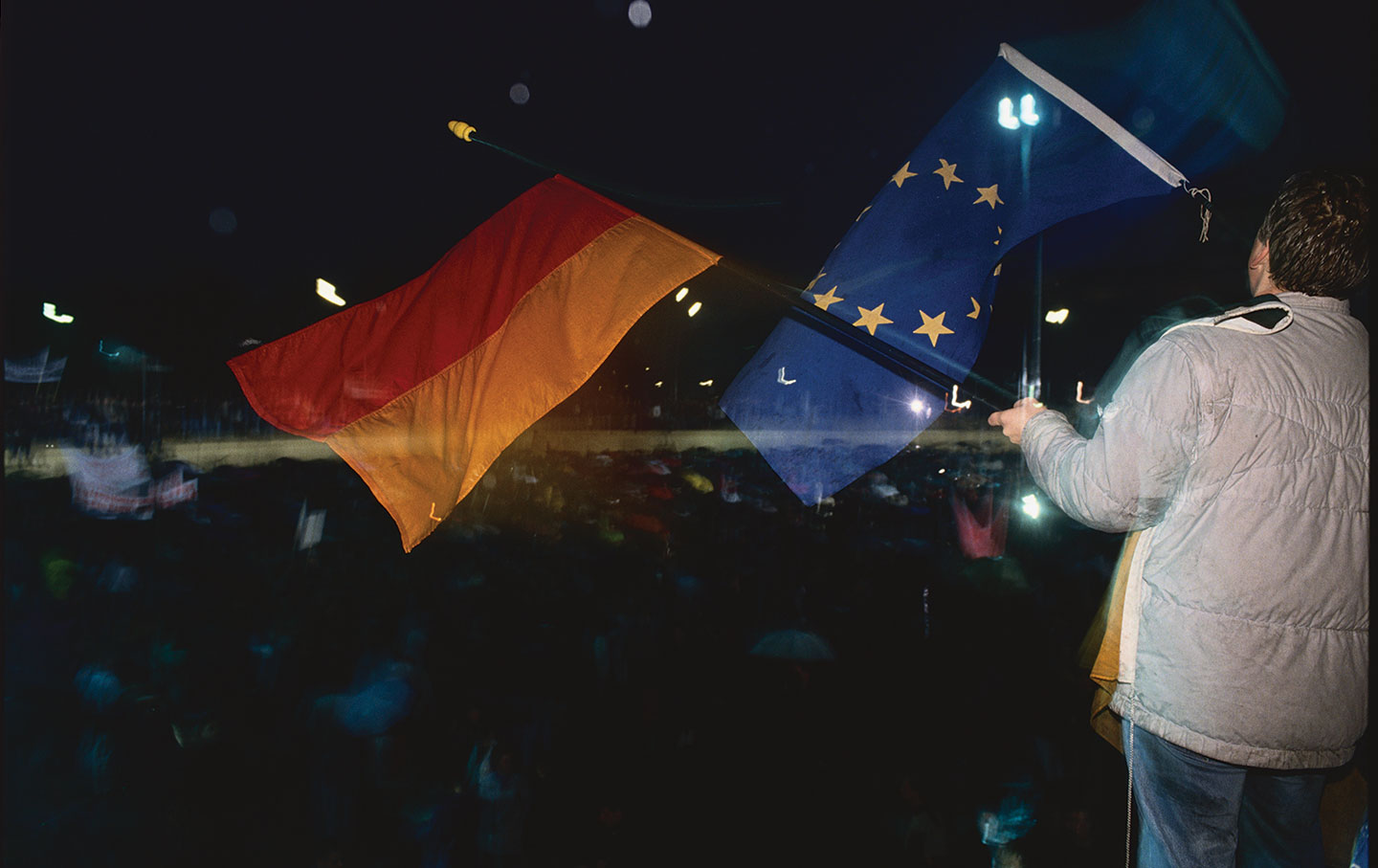
Berlin, December 22, 1989.
(Bernard Bisso / Getty)Barely a decade after the collapse of the Third Reich, half a dozen countries in Western Europe banded together in an experiment in international economic cooperation. Their combined population was nearly 170 million—less than a third of the entire continent—though it was growing at a robust rate. They were, by today’s standards, fairly closed economies with tight regulations governing the movement of capital and strong and expanding traditions of strategic state planning. In their rural areas, a peasant way of life remained much as it had been for centuries, scarcely touched by tourism; traditional customs and clothing were still to be found. Yet there were sources of dynamism and transformation as well: The countries were also trading powerhouses, amounting collectively to nearly a third of the world’s manufacturing exports. Most had sizable trade unions, still accumulating reach and power, and their inhabitants’ lives were improving quickly in material terms. The 1957 Treaty of Rome, which formalized the union of these countries—Italy, Belgium, France, Luxembourg, the Netherlands, and West Germany—was more than just an effort to create a new common market between them; it was also a show of faith in the future and a wager on what collective political action could secure.
Books in review
-
Homelands: A Personal History of Europe
Buy this book -
Europe’s Coming of Age
Buy this book
And yet, for all their forward-looking belief in the power of rational cooperation, it is surely fair to say that none of the politicians who took the lead in creating the European Economic Community and what eventually would become the European Union could ever have imagined where it would lead. Nearly seven decades later, war between France and Germany has become unthinkable, just as they hoped it would, and the institutions they founded are still going strong.
And not just going strong. History is full of international bodies that fizzle out and disappear or become pale shadows of what their founders intended. But this is not true of the EU. On the contrary, the institutional core of European integration is far more powerful and all-encompassing than anything that was dreamed of at the start. From an original membership of six, the club has expanded to include the vast majority of states in geographical Europe, with a total population that exceeds that of the United States and Canada combined. And these states are interconnected through an acquis communautaire overseen by an immensely powerful legal apparatus and an equally powerful central bank. There is a common currency and fiscal transfers on a substantial scale across the bloc. The European Union that Britain abandoned in 2020 may be something more complicated and difficult to define than the unified superstate Behemoth of the Brexiteers’ nightmares, but it is certainly a bigger and much more muscular creature than the relatively modest EEC that the UK first applied to join back in 1963.
The rise of the European Union has taken place against the backdrop of more than half a century of fundamental social and economic changes. Of these, perhaps the most striking and least expected was the way the Cold War ended. The peaceful regional integration of much of Eastern Europe into the EU has been an extraordinary historical achievement, as well as testimony to its success as the last and perhaps greatest of the 19th century’s peace projects. But while the EU has grown in size and scale, the Europe it sought to unify has become a very different continent than it once was, as well as one that exists in an ever less Eurocentric world. Today, Europe’s population represents less than 10 percent of the globe’s, down from 20 percent or more when the Treaty of Rome was signed. Population growth rates are low and trending negative. Meanwhile, China’s GDP has overtaken the EU’s for the first time, and capital deregulation has allowed for a massive increase in macroeconomic volatility. Per capita income growth in Europe has fallen, slowing dramatically since the end of the 1970s. Or to put it another way: People’s incomes were growing much faster when the integration process started than they are now. It is thus not surprising that the European Union in its contemporary guise is tolerated or accepted rather than enthusiastically embraced. The EU is increasingly associated with uncertain economic performance and stagnant if not falling living standards for much of its population, exacerbated by the significant increase in inequality that has accompanied the weakened place of organized labor and the maintenance of a monetary regime devoted to protecting the euro.
It is at this juncture, and partly in response to this predicament, that two new books about the European Union have recently appeared: Timothy Garton Ash’s Homelands and Loukas Tsoukalis’s Europe’s Coming of Age. Both books combine retrospection and prognosis. Tsoukalis was born in Greece in 1950, Garton Ash in the UK five years later. They thus belong not only to the same generation but also to countries outside the original six that founded the EEC. Both men grew up to become noteworthy analysts and advocates of the European project—insider-outsiders rather than career policymakers, but with access to elites as part of their claim to authority. For both, retrospection means revisiting the time when European unification became their cause. Yet it also means revisiting the challenges of yesteryear and comparing them with the challenges ahead.
A journalist by training, Timothy Garton Ash is more forthcoming about the ways in which his personal experiences have shaped and intersected with his professional commitments. He opens his book at the end of World War II. This was, of course, the moment in which the path to European integration began, but it was also when his father, serving as an officer in the British Army, took part in the defeat and occupation of Germany. His father, a Royal Artillery officer who was among the first to land on the Normandy beaches in the summer of 1944 and later won a Military Cross, was Garton Ash’s link to Europe. He was, on the one hand, a heroic figure who led family expeditions to the continent in their Hillman Super Minx. But he was also, especially as he aged, the epitome of that very British suspicion of Europe that his son wrestles with and devotes his life to trying to overcome. (There is less in the book about his mother, whose wartime work in photographic intelligence at RAF Medmenham also seems relevant to her son’s later curiosity.)
From the 1940s and ’50s, Garton Ash moves his story to the early ’70s. Old enough to remember when the continent really did seem far away, he describes how the reality of Europe’s politics came alive for him only when he was brought face to face with its authoritarian traditions on a trip to Greece. For Garton Ash, the regimes in Greece, Spain, and Portugal led to a realization that fascism was alive and well in Europe and that it was his generation’s task to slay its new manifestations. This also led him, while in his 20s, to embrace the idea of Europe as a set of liberal and democratic values at a time when the prevailing language among insiders in Brussels was technocratic and culture-averse, which made him an unusually outward-looking figure in a Britain that remained locked in its own postimperial introspection even after it joined the Common Market in 1973. As Garton Ash recounts the outlook of key figures in the creation of the European Union, he conveys how the anti-fascist experiences of a generation of Greeks, Spaniards, and Portuguese helped shape their commitment to democracy.
But it is not the death of fascism with which Garton Ash is generally associated in his writings—after all, the right-wing dictatorships in Greece, Spain, and Portugal had collapsed by the mid-1970s, and neofascism remained on the fringe for many years. Instead, it was Garton Ash’s remarkable reporting from Poland and Czechoslovakia in the 1980s on communism’s death throes that made his name. It was there that he encountered the people who come across in his new book almost as alternate father figures. Among these, the Polish scholar-politician Bronisław Geremek looms largest, as does Václav Havel. Such men—intellectual, creative, cultured, and passionate—brought a moral fervor and a sense of the historical stakes to the European project that was very different in intensity from the drier and more technocratic register of the EU’s founding fathers. They saw “a future called Europe” as a means to escape the experience of communist oppression, and for Garton Ash, there was something exhilarating about witnessing and sharing in this vision of freedom.
Garton Ash has described himself as a historian of the contemporary, but Homelands is more a set of personal reminiscences blended with reportage of the kind that he has won renown for. It is hard not to feel a dying fall in the book as the generation of 1989 takes power and now has to wrestle with political realities, watching as their liberal aspirations wither, the left collapses, and a new authoritarian right gathers strength. Garton Ash is surely right to attribute these worrying trends to complacency and forgetfulness—complacency because the project of international cooperation has done its work so well, and forgetfulness as new generations move further away from the era of the Second World War and the memory of what fascism can lead to. Yet such an approach implies a very partial reckoning with the task ahead; it has rather little to say about the mistaken policy choices that contributed to the EU’s travails and surprisingly little about its economic and legal innovations.
For these, one must turn to Loukas Tsoukalis, whose early work was on the politics of European monetary integration, a subject on which he proved to be well ahead of the game. If Garton Ash writes as a journalist and “contemporary” historian, Tsoukalis approaches the story of the European Union from the perspective of an academic specializing in political economy and international relations. He was in his 20s when he was appointed to a fellowship at Oxford in European studies, and he was thus part of the first cohort of the UK’s Europe experts, long before ample funding from Brussels swelled their number. Since the 1970s, his career has been chiefly spent in the world of universities and think tanks; indeed, he has taught for many years at the College of Europe, itself linked to the founders of the Common Market. In general, Tsoukalis writes from the perspective of someone immersed in the institutional arguments who is also keen to show how thoroughly political questions are enmeshed in the seemingly technocratic economic policy debates.
Like Garton Ash, Tsoukalis starts Europe’s Coming of Age in a retrospective vein—offering what he calls “Extracts From a Diary on the European Journey”—but he is rather more reserved about personal matters. It would have been good, for example, to learn more about his family background and what drove him, at a fairly early date, to study abroad and devote himself to all matters European. Greece in the 1960s, after all, was a country where civil war was a recent memory and where fascism had returned in the shape of the colonels around the time that Tsoukalis graduated from high school. This certainly would have given him a keener appreciation of European democracy than his more fortunate peers in Western Europe possessed, but his own intellectual connection with European integration is left for us to imagine, as is the impact of the Greek junta on his decision to study abroad in England.
Unlike Garton Ash, however, who is generally less interested in the fine-grained institutional details, Tsoukalis has a gift for summarizing complex economic issues for the general reader, and he is clear about the problems that he sees ahead, which he attributes to the EU’s technocratic style, its neglect of the distributive aspects of economic policy in favor of monetary stability, and above all its democratic deficit.
Popular
“swipe left below to view more authors”Swipe →Yet despite the lucidity and easygoing style of Tsoukalis’s presentation, I am not sure how successful he will be in winning over the doubters. In general, the voice he uses is very much one from inside the Beltway. One of Tsoukalis’s favorite ways of recommending a policy is to describe it as “adult”; overall, he wants to see the European Union “come of age.” What he means by this (to summarize it baldly) is a form of chastened but still ambitious social democracy that will make the EU a political and strategic force in the world, one capable of becoming less reliant on American military might and able to police what he calls its “neighborhood.”
Besides Tsoukalis himself, the book’s protagonists tend to be other academics, commentators, and high-level policymakers, and this dilutes its anti-elitist impulses. It’s hard to write, as Tsoukalis too often appears to do here, for so-called “political adults” without sounding like you can’t be bothered with all those troublesome children getting in the way of rational policymaking. And yet Tsoukalis worked as a consultant in the former Soviet bloc in the 1990s and has flirted with politics in his native Greece; to have taken us inside those messier and more politically charged personal experiences would have made this a more probing and self-reflective study.
One comes away from both Homelands and Europe’s Coming of Age with a sense of the predicament faced today by their authors’ generational cohort. The two books convey the importance of historical memory—whether of the Second World War, dictatorship in Southern Europe, or communism in Eastern Europe—in driving European integration forward and enhancing the appeal of international cooperation so as to realize the Mazzinian vision of a world of nation-states working together and pooling some aspects of their sovereignty so as to safeguard others.
Yet between them, they suggest that historical memory alone is no longer enough. Anti-fascism is a waning force. If new generations are to be persuaded to embark on their own European journey, the old ideology of elite rationality will have to give way to something more heartfelt. As it happens, some of the overriding challenges of the 21st century make this an easier case to sell. Competition from China demands a collective response; so does global warming; so does the likely persistence of a revanchist postimperial Russia for years to come. And so, of course, does the likely continuation of migration into the continent from Africa and the Middle East. All of these issues help make the case for European cooperation. It will fall to a new generation to craft the response.
Independent journalism relies on your support
With a hostile incoming administration, a massive infrastructure of courts and judges waiting to turn “freedom of speech” into a nostalgic memory, and legacy newsrooms rapidly abandoning their responsibility to produce accurate, fact-based reporting, independent media has its work cut out for itself.
At The Nation, we’re steeling ourselves for an uphill battle as we fight to uphold truth, transparency, and intellectual freedom—and we can’t do it alone.
This month, every gift The Nation receives through December 31 will be doubled, up to $75,000. If we hit the full match, we start 2025 with $150,000 in the bank to fund political commentary and analysis, deep-diving reporting, incisive media criticism, and the team that makes it all possible.
As other news organizations muffle their dissent or soften their approach, The Nation remains dedicated to speaking truth to power, engaging in patriotic dissent, and empowering our readers to fight for justice and equality. As an independent publication, we’re not beholden to stakeholders, corporate investors, or government influence. Our allegiance is to facts and transparency, to honoring our abolitionist roots, to the principles of justice and equality—and to you, our readers.
In the weeks and months ahead, the work of free and independent journalists will matter more than ever before. People will need access to accurate reporting, critical analysis, and deepened understanding of the issues they care about, from climate change and immigration to reproductive justice and political authoritarianism.
By standing with The Nation now, you’re investing not just in independent journalism grounded in truth, but also in the possibilities that truth will create.
The possibility of a galvanized public. Of a more just society. Of meaningful change, and a more radical, liberated tomorrow.
In solidarity and in action,
The Editors, The Nation
More from The Nation
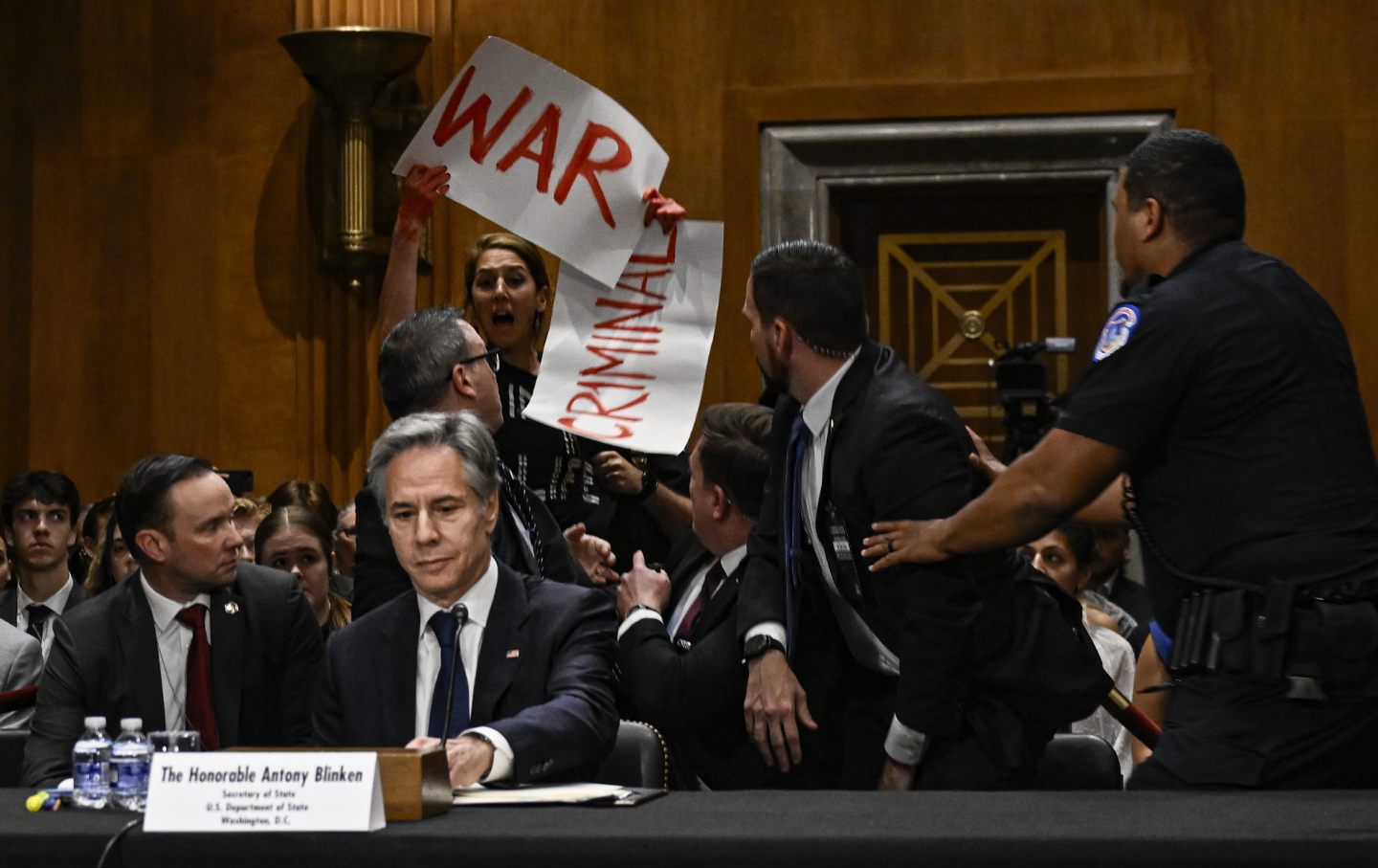
The “Blob” Is Furious About Gaza. But That’s Not Enough. The “Blob” Is Furious About Gaza. But That’s Not Enough.
The foreign policy proletariat needs to stop filtering its dissent through official channels and start taking more radical action.
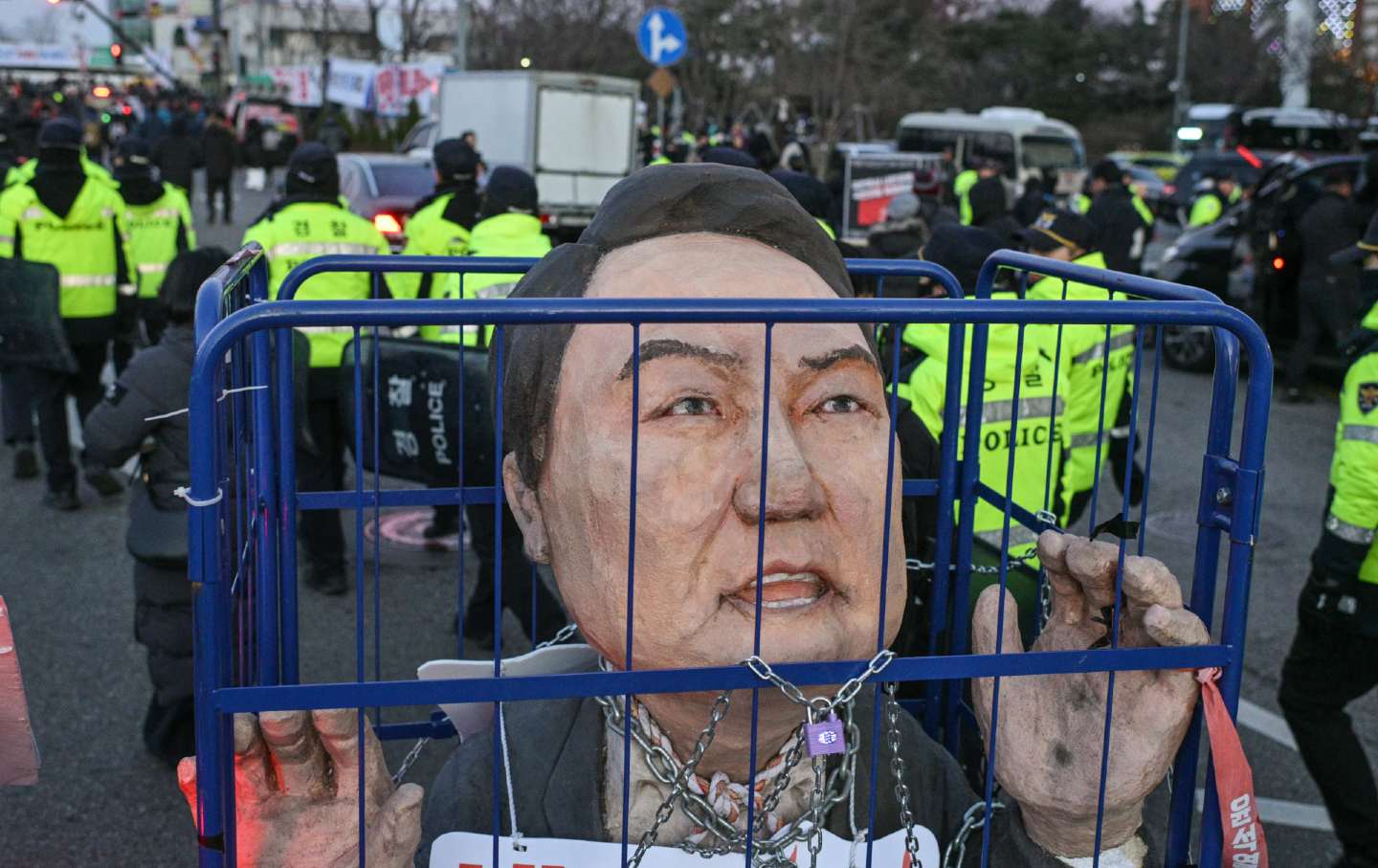
South Korea's Autumn of the Patriarchy South Korea's Autumn of the Patriarchy
President Yoon Suk-yeol is the first of his country's leaders eager to be a stooge of both Washington and Tokyo. His impeachment is testimony to the strength of Korean democracy.
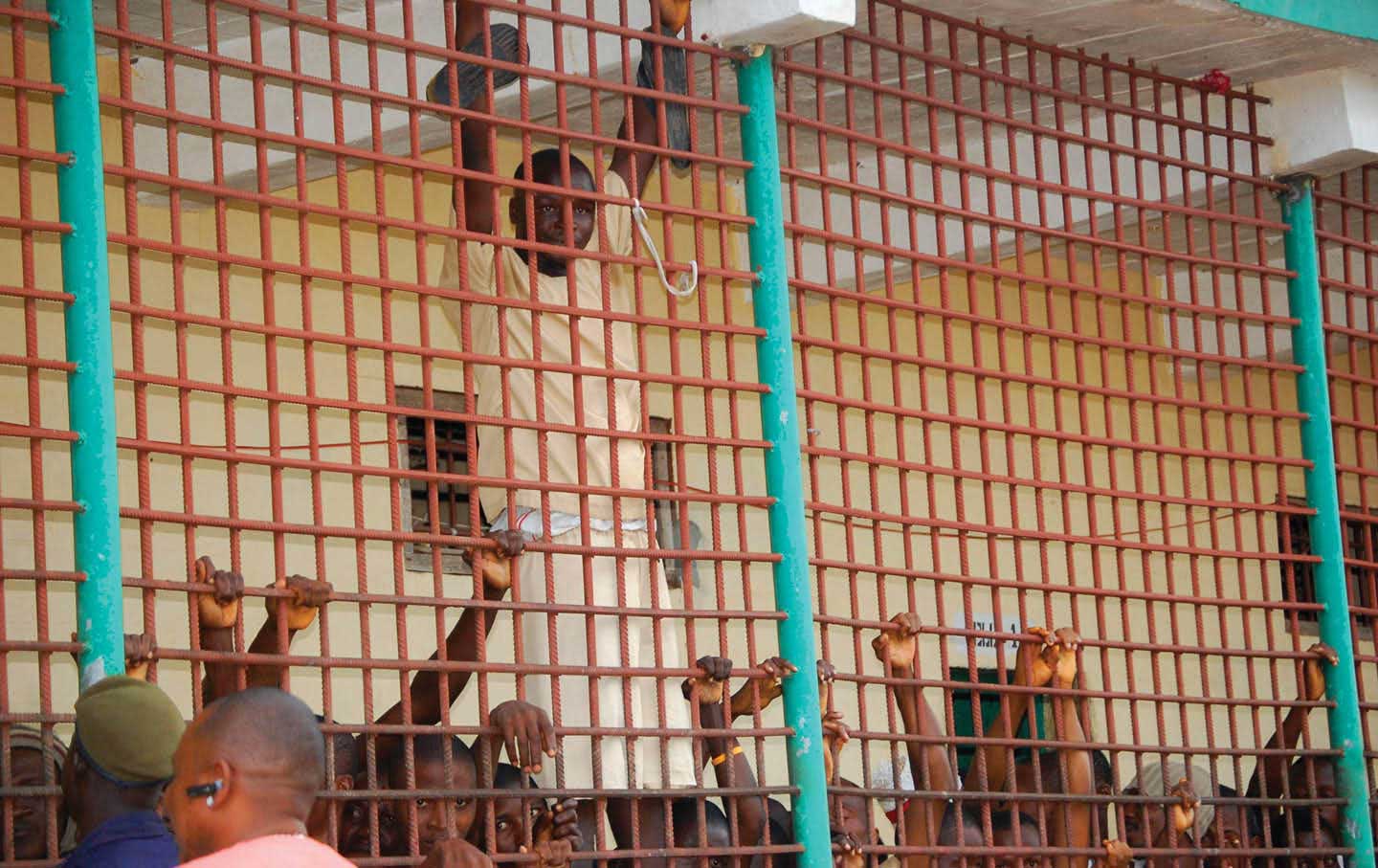
The Legacy of the British Legal System Continues to Inflict Misery in Sierra Leone The Legacy of the British Legal System Continues to Inflict Misery in Sierra Leone
Decades after independence, colonial-era laws have created a mass-incarceration crisis in Sierra Leone as poor citizens are thrown into prison for the smallest offenses.
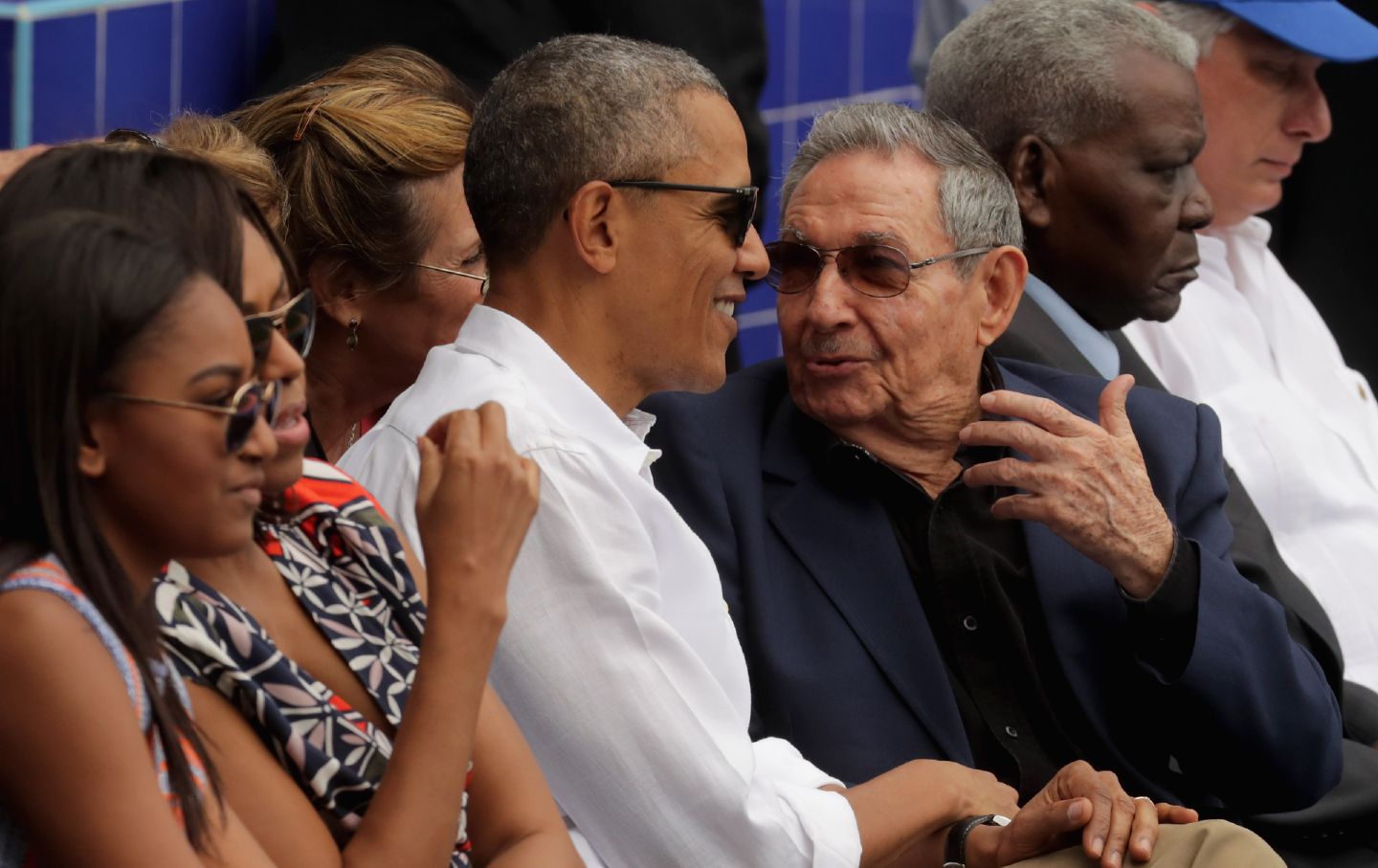
Biden’s Legacy on Cuba Biden’s Legacy on Cuba
On the 10th anniversary of Obama’s opening, the outgoing president should take immediate action because it is good for the US, good for the Cuban people—and the right thing to do....

The Military Under Trump Will Be a Disaster The Military Under Trump Will Be a Disaster
It’s no longer clear that anyone in Trump’s second term will be there to restrain him from moving forward with his worst intentions against civilians.
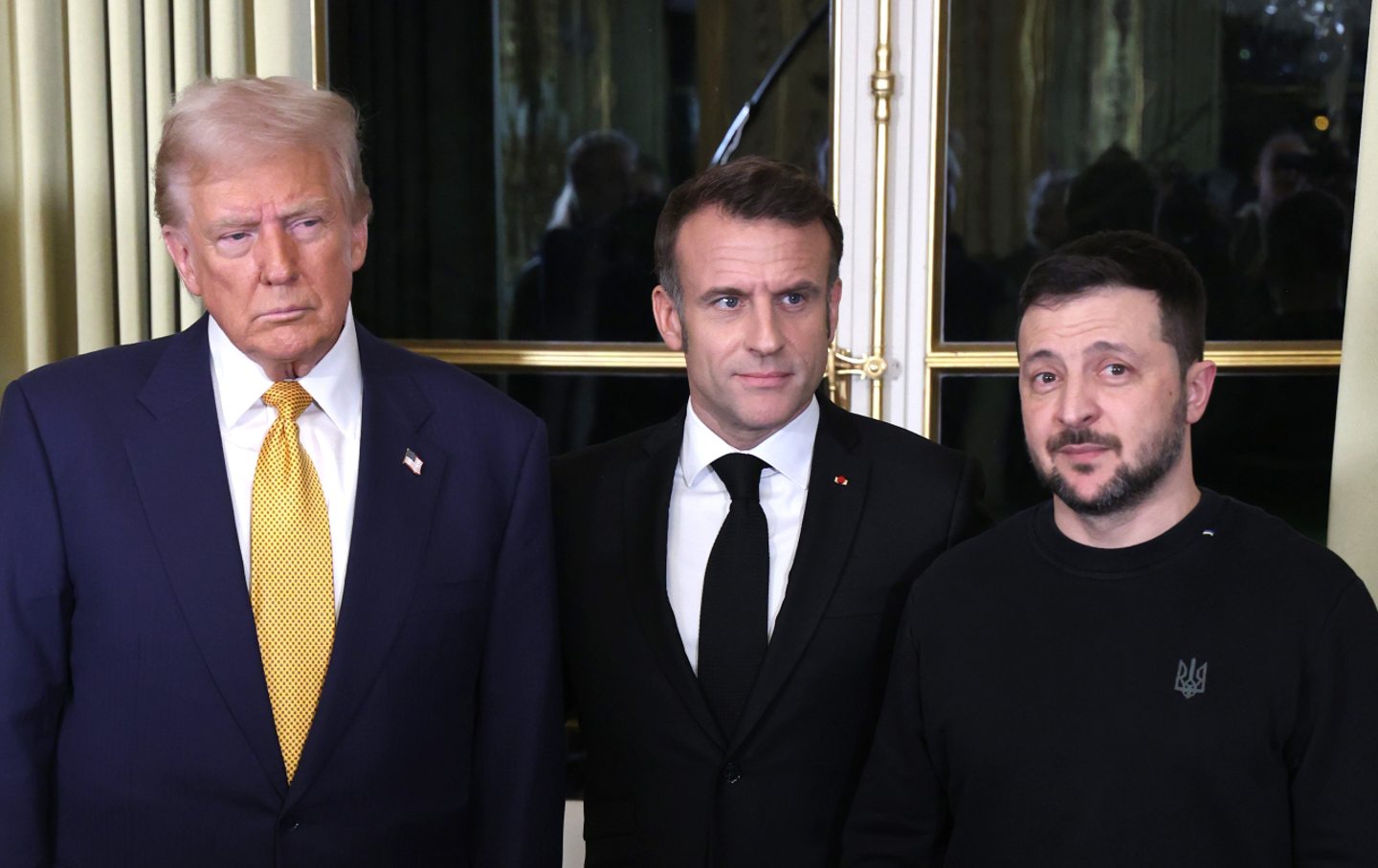
How Europe Can Learn to Love Trump How Europe Can Learn to Love Trump
Is it too late for Europe to unwind its dependence on the United States?


